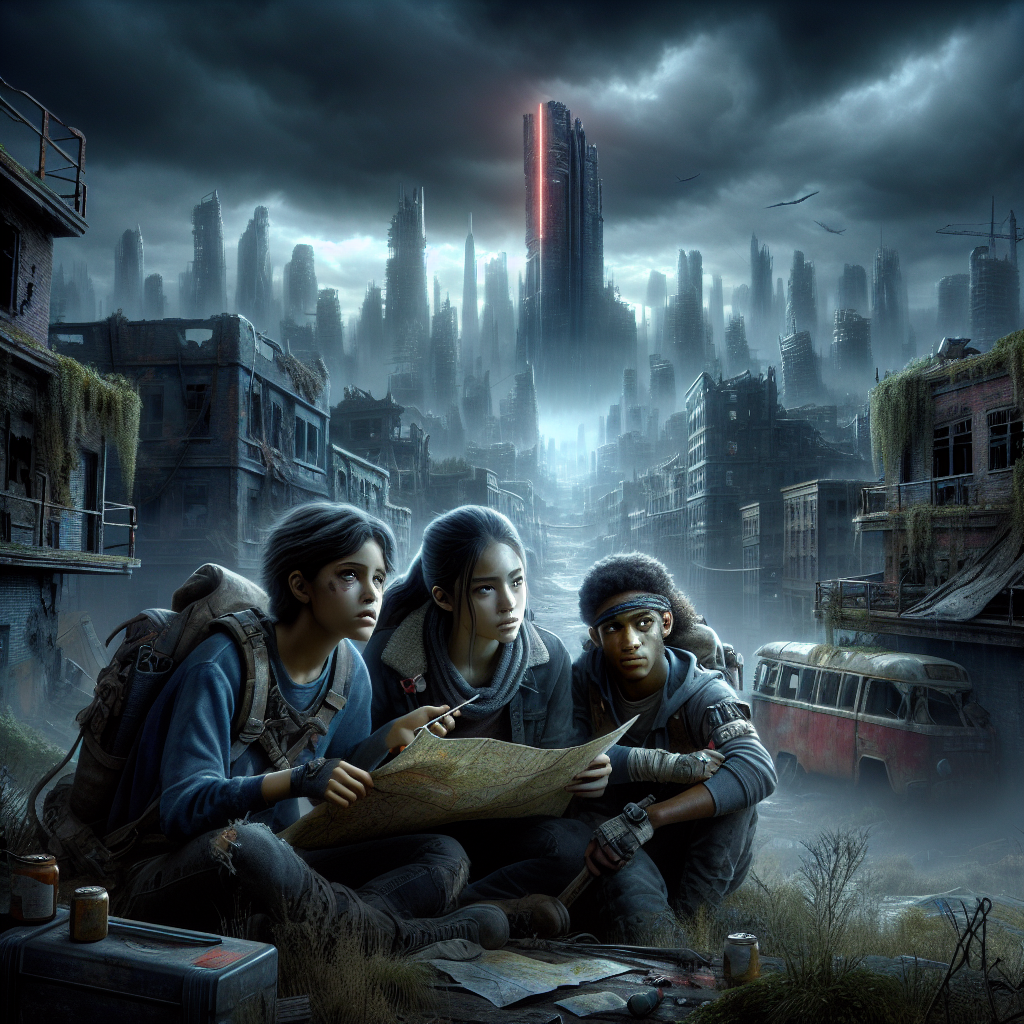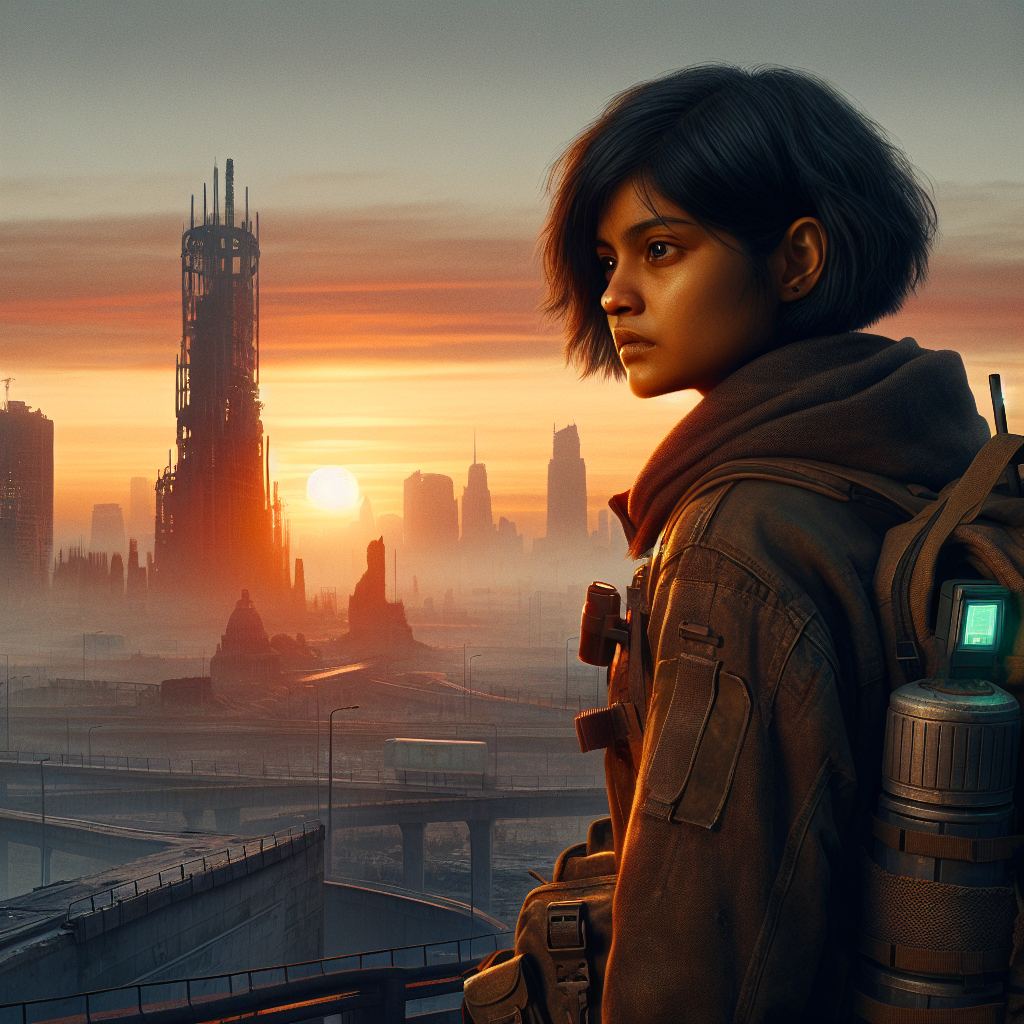As an Amazon Associate I earn from qualifying purchases.
Exploring the World of YA Dystopian Fiction: A Deep Dive into Its Popularity

The realm of Young Adult (YA) dystopian fiction has seen a meteoric rise in popularity over the past few decades. This genre, characterized by its exploration of futuristic, post-apocalyptic worlds governed by oppressive regimes or societies, has captivated the imaginations of readers worldwide. From the desolate landscapes of Panem in “The Hunger Games” to the divided society of “Divergent”, YA dystopian novels offer a thrilling escape into worlds that, while often bleak, speak volumes about our current societal fears and challenges. This article delves into the most popular YA dystopian fiction, exploring the reasons behind its appeal and highlighting key examples that have left an indelible mark on the genre.
Understanding the Appeal of YA Dystopian Fiction
YA dystopian fiction resonates with readers for several reasons. Firstly, it often features young protagonists who rise against oppressive systems, embodying themes of resilience, courage, and the quest for freedom. These narratives provide a sense of hope and empowerment, particularly appealing to the younger demographic. Additionally, the dystopian setting allows authors to explore complex themes such as identity, societal structure, and the consequences of technological and environmental misuse in an accessible and engaging manner. This blend of thrilling adventure with deeper social commentary makes YA dystopian novels both entertaining and thought-provoking.
Key Examples of Popular YA Dystopian Novels
The landscape of YA dystopian literature is vast, but certain titles have risen to the forefront, capturing the hearts of millions and often transcending their target demographic to reach a broader audience. Here are some standout examples:
- The Hunger Games by Suzanne Collins – Perhaps the most recognizable name in YA dystopian fiction, “The Hunger Games” trilogy follows Katniss Everdeen as she navigates the deadly games designed by the Capitol to control the districts of Panem. Its themes of survival, tyranny, and rebellion have sparked widespread discussion and inspired a highly successful film series.
- Divergent by Veronica Roth – Set in a future Chicago where society is divided into five factions based on human virtues, “Divergent” explores themes of identity, belonging, and resistance. Its compelling narrative and complex characters have made it a favorite among readers and critics alike.
- The Maze Runner by James Dashner – This series introduces readers to a mysterious and ever-changing maze, with no memory of the outside world. The story's unique setting and gripping plot twists have captivated a large audience, leading to a successful movie adaptation.
- Delirium by Lauren Oliver – In a future where love is deemed a disease and eradicated with a mandatory procedure, “Delirium” delves into the power of emotions and the human spirit. Its poignant exploration of love and choice has resonated with many.
The Impact of YA Dystopian Fiction on Society and Culture
YA dystopian fiction does more than entertain; it mirrors and critiques contemporary societal issues. Through exaggerated dystopian worlds, authors can explore themes of government control, environmental degradation, and the loss of individual freedoms, prompting readers to reflect on their own world. The genre's popularity has also led to a significant cultural impact, with adaptations of these novels into films and TV series, merchandise, and even influencing political discourse. Moreover, the discussions these books inspire in classrooms, book clubs, and online forums highlight their role in fostering critical thinking and dialogue among young readers.
Challenges and Criticisms of YA Dystopian Fiction
Despite its popularity, YA dystopian fiction is not without its critics. Some argue that the genre is becoming formulaic, with repetitive themes and predictable plotlines. Others express concern over the often grim and violent content, questioning its suitability for younger readers. Additionally, the portrayal of dystopian societies can sometimes oversimplify complex social issues, potentially leading to a skewed understanding of these problems. However, many authors and educators counter these criticisms by emphasizing the genre's role in encouraging engagement with difficult topics and fostering resilience and empathy among readers.
Conclusion: The Enduring Legacy of YA Dystopian Fiction
YA dystopian fiction has firmly established itself as a powerful and popular genre within the literary world. Its ability to combine thrilling narratives with meaningful commentary on societal issues has resonated with readers of all ages. While it faces its share of criticisms, the genre's impact on culture, its role in sparking important conversations, and its capacity to inspire and empower its audience cannot be denied. As society continues to evolve, so too will the landscapes of dystopian worlds, ensuring that YA dystopian fiction remains a relevant and compelling exploration of humanity's potential futures.
In conclusion, the popularity of YA dystopian fiction lies not just in its entertainment value but in its profound ability to reflect and critique the world around us. Through the trials and triumphs of their young protagonists, these novels encourage readers to question, to dream, and to dare to imagine a better world. As long as there are stories to be told, the genre will continue to thrive, evolve, and inspire generations to come.
Amazon and the Amazon logo are trademarks of Amazon.com, Inc, or its affiliates.






















































